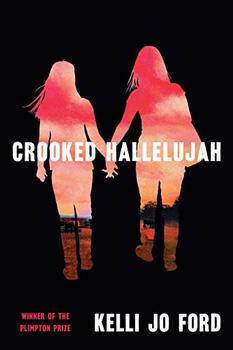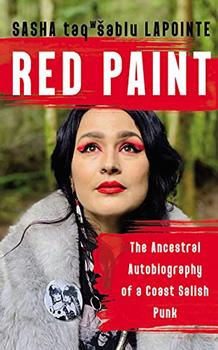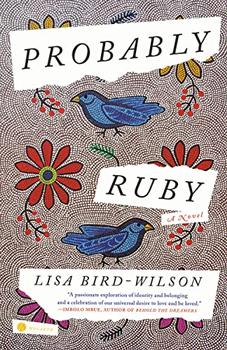Summary | Excerpt | Reviews | Beyond the book | Read-Alikes | Genres & Themes | Author Bio

It's 1974 in the Cherokee Nation of Oklahoma and fifteen-year-old Justine grows up in a family of tough, complicated, and loyal women presided over by her mother, Lula, and Granny.
After Justine's father abandoned the family, Lula became a devout member of the Holiness Church – a community that Justine at times finds stifling and terrifying. But Justine does her best as a devoted daughter until an act of violence sends her on a different path forever.
Crooked Hallelujah tells the stories of Justine―a mixed-blood Cherokee woman― and her daughter, Reney, as they move from Eastern Oklahoma's Indian Country in the hopes of starting a new, more stable life in Texas amid the oil bust of the 1980s. However, life in Texas isn't easy, and Reney feels unmoored from her family in Indian Country. Against the vivid backdrop of the Red River, we see their struggle to survive in a world―of unreliable men and near-Biblical natural forces, like wildfires and tornados―intent on stripping away their connections to one another and their very ideas of home.
In lush and empathic prose, Kelli Jo Ford depicts what this family of proud, stubborn, Cherokee women sacrifices for those they love, amid larger forces of history, religion, class, and culture. This is a big-hearted and ambitious novel of the powerful bonds between mothers and daughters by an exquisite and rare new talent.
Though Crooked Hallelujah opens with radiant confidence and pushes through to a generous and satisfying ending, it suffers in between from a common pitfall of the novel-in-stories format: It sometimes adheres to a strong narrative arc, but at other times wanders too far from its central concerns. Despite this, all the various parts of the novel are infused with a similar urgent mood that suggests the inner arrangement of a person's self has a crucial effect on the external world around them. Ford offers readers a memorable glimpse of her characters' lives, making the journey through their stories abundantly worthwhile...continued
Full Review
(802 words)
This review is available to non-members for a limited time. For full access,
become a member today.
(Reviewed by Elisabeth Cook).
 In Crooked Hallelujah by Kelli Jo Ford, Justine dreams of riding the Big Bend roller coaster at Six Flags. Today, Six Flags is a large theme park company with locations throughout North America and also in China, the United Arab Emirates and Saudi Arabia. Justine, who is living in the Cherokee Nation of Oklahoma in 1974, is anticipating a visit to the original park that spawned the conglomerate, Six Flags Over Texas.
In Crooked Hallelujah by Kelli Jo Ford, Justine dreams of riding the Big Bend roller coaster at Six Flags. Today, Six Flags is a large theme park company with locations throughout North America and also in China, the United Arab Emirates and Saudi Arabia. Justine, who is living in the Cherokee Nation of Oklahoma in 1974, is anticipating a visit to the original park that spawned the conglomerate, Six Flags Over Texas.
Six Flags Over Texas opened in 1961 in Arlington, Texas. It required more than a year to build and cost $10 million (which translates to about $85 million today). The idea for the park came from a real estate developer named August Wynne. Initially, Wynne intended for the theme park to be a temporary way to profit from ...
This "beyond the book" feature is available to non-members for a limited time. Join today for full access.

If you liked Crooked Hallelujah, try these:

by Sasha taqʷšəblu LaPointe
Published 2023
An Indigenous artist blends the aesthetics of punk rock with the traditional spiritual practices of the women in her lineage in this bold, contemporary journey to reclaim her heritage and unleash her power and voice while searching for a permanent home.

by Lisa Bird-Wilson
Published 2023
An Indigenous woman adopted by white parents goes in search of her identity in this unforgettable debut novel about family, race, and history.
Censorship, like charity, should begin at home: but unlike charity, it should end there.
Click Here to find out who said this, as well as discovering other famous literary quotes!